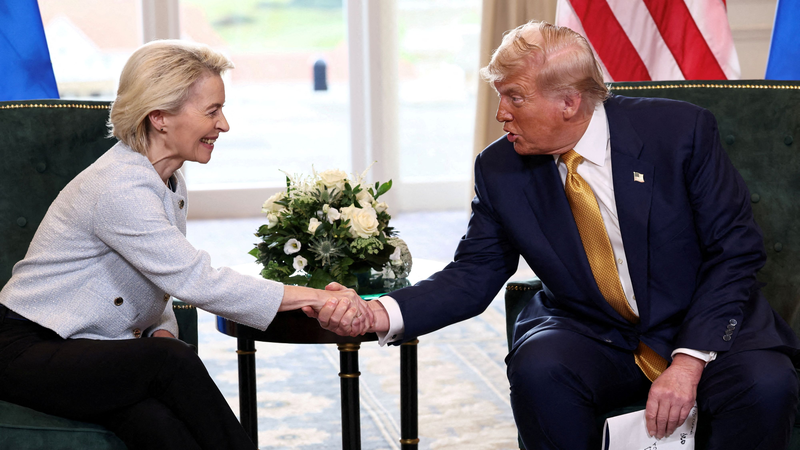In a much-anticipated outcome of talks between the EU and the U.S., leaders unveiled a trade deal that promises short-term stability but has left many in Europe questioning its long-term balance. As the dust settles on what one French minister called a “somber day,” the headlines are dominated by debate.
French Prime Minister François Bayrou described the agreement as a setback for Europe, while his country’s minister for Europe, Benjamin Haddad, called it “unbalanced.” From Brussels to Budapest, the mood is far from celebratory.
Hungarian Prime Minister Viktor Orban didn’t mince words, likening the negotiations to a one-sided feast: “Donald Trump ate Ursula von der Leyen for breakfast,” he said during a livestream, referring to the EU chief who negotiated the deal after a round of golf in Scotland.
At the heart of the deal are 15% tariffs on key European exports—autos, semiconductors and pharmaceuticals—down from a looming 30% levy set to kick in on August 1. In return, the EU agreed to purchase $750 billion in U.S. energy and commit an additional $600 billion in investments.
President Trump hailed it as “probably the biggest deal ever reached,” while Ursula von der Leyen praised the “tough negotiations” that delivered “the best we could get.” Yet across EU capitals, analysts are asking: does this pave the way for a stronger transatlantic partnership, or merely paper over deeper imbalances?
With trade tensions and geopolitical shifts on the horizon, global citizens and business leaders alike will be watching closely to see if this pact truly delivers on its promise of mutual gain—or if Europe ends up with more bite than balance.
Reference(s):
EU-U.S. deal: Stability? Or did Trump 'eat EU chief for breakfast'?
cgtn.com



